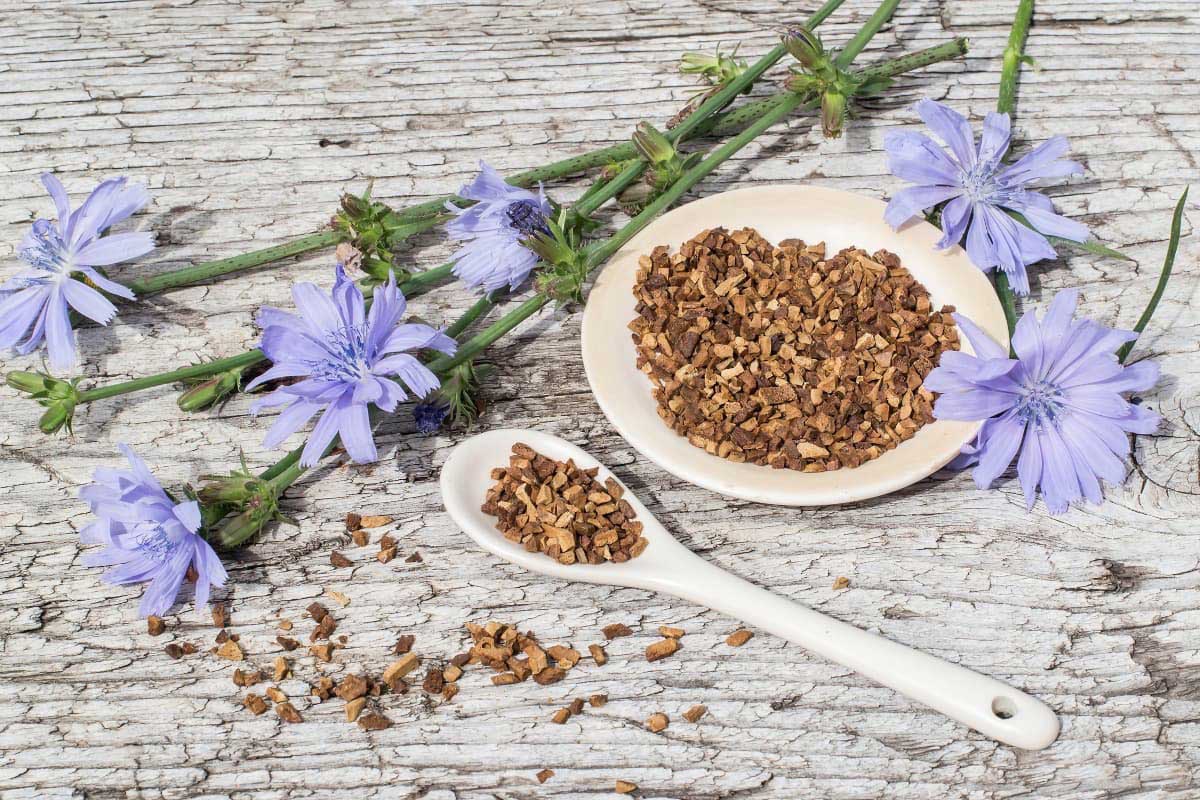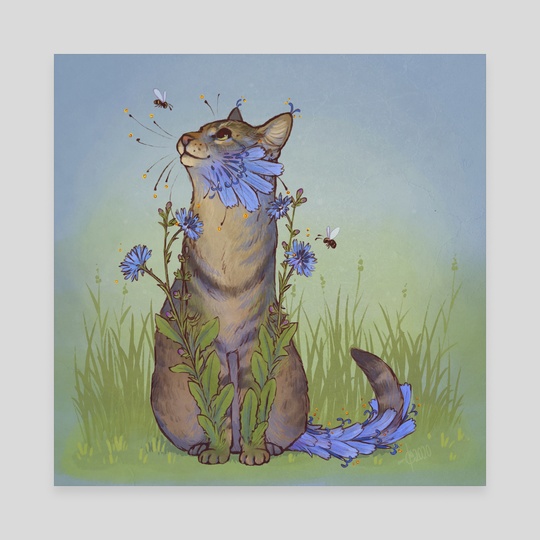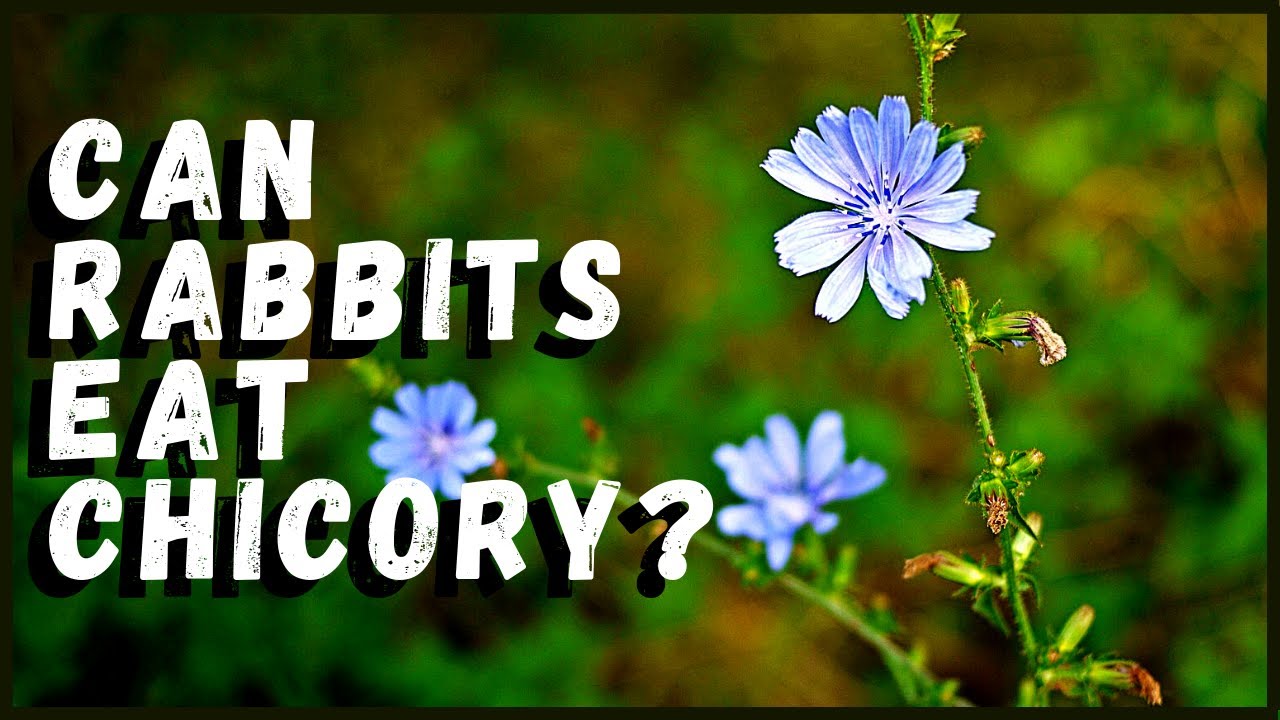Key Takeaways
Chicory is generally safe for dogs, rabbits, and cats when given in moderation.
Chicory root contains inulin, a prebiotic that promotes gut health.
Both the leaves and roots of chicory can be beneficial, but the flowers and stems should be avoided.
Introducing chicory gradually is important to monitor any adverse reactions.
Consulting a veterinarian is crucial before adding chicory to your pet’s diet.
Chicory and Pet Safety: Essential Information
Chicory is a flowering plant related to the dandelion and has been used for culinary and medicinal purposes since Roman times. The plant is often used in salads and as a coffee substitute. But the question remains: is chicory safe for our pets? Specifically, can dogs, rabbits, and cats eat chicory greens without any adverse effects?
First, it’s important to note that not all parts of the chicory plant are equally safe. The roots and leaves are generally considered safe, while the flowers and stems should be avoided. The roots contain inulin, a prebiotic fiber that supports digestive health by promoting the growth of beneficial gut bacteria. This makes chicory a nutrient-dense ingredient that can boost your pet’s overall nutrition.
Nutritional Benefits of Chicory for Pets
Chicory offers several nutritional benefits for pets. It is rich in vitamins, minerals, and fiber. The inulin found in chicory root is particularly beneficial for gut health. Here’s a closer look at the nutritional profile:
Vitamins: Chicory is rich in vitamins A, C, and K, which are essential for various bodily functions.
Minerals: It contains essential minerals like potassium, calcium, and magnesium.
Fiber: The high fiber content aids in digestion and promotes a healthy gut.
Which Parts of Chicory Are Safe?
Both the leaves and roots of chicory are safe for pets. However, the flowers and stems should be avoided. The leaves may be bitter, but cooking them can improve their taste. You can grate raw chicory root onto your pet’s food or choose treats that incorporate chicory.
“What is Chicory for Dogs and Can They …” from blog.homesalive.ca and used with no modifications.
Can Dogs Eat Chicory Greens?
Yes, dogs can eat chicory greens in moderation. Chicory is generally safe for dogs and can offer some health benefits. However, it’s important to introduce it gradually and monitor your dog’s reaction.
Health Benefits for Dogs
Chicory root contains inulin, a prebiotic fiber that can support digestive health by promoting the growth of beneficial gut bacteria. This can lead to improved digestion and overall gut health. For more information on pet-safe plants, check out favorite plants for rabbit gardens.
Safe Consumption Amounts
When introducing chicory to your dog’s diet, start with a small amount. Gradually increase the quantity while monitoring your dog’s reaction. Here are some general guidelines:
Small dogs: 1-2 teaspoons of chicory root or leaves per day.
Medium dogs: 1-2 tablespoons per day.
Large dogs: 2-4 tablespoons per day.
Potential Risks and Side Effects
While chicory is generally safe, some dogs may be allergic to inulin. Watch for signs of allergies, such as itching, swelling, or digestive upset. If you notice any adverse reactions, discontinue use and consult your veterinarian.
Therefore, incorporating chicory into your dog’s diet can be beneficial, but caution is key. Always start small and monitor your dog’s health closely.
Possible Digestive Issues
Digestive issues can arise if chicory is introduced too quickly or in large amounts. Symptoms to watch for include diarrhea, vomiting, and gas. If your dog experiences any of these symptoms, reduce the amount of chicory or discontinue its use altogether.
“Botanimals – Chicory Cat, an art canvas …” from www.inprnt.com and used with no modifications.
Can Cats Eat Chicory Greens?
Yes, cats can eat chicory greens, but it’s important to introduce them gradually. Cats are obligate carnivores, meaning their diet should primarily consist of meat. However, small amounts of chicory can offer some health benefits. For more information on pet-safe plants, check out this article on Angelonia.
Nutritional Value for Felines
Chicory provides several nutrients that can be beneficial for cats, similar to how rosemary is not toxic to dogs or cats.
Vitamins: Chicory contains vitamins A, C, and K, which support various bodily functions.
Minerals: Essential minerals like potassium and calcium are found in chicory.
Fiber: The fiber content can aid in digestion and promote gut health.
Recommended Portions
When feeding chicory to your cat, start with a very small amount. Here are some general guidelines:
Kittens: A pinch of chicory greens or root per day.
Adult cats: 1/4 teaspoon per day.
Common Reactions to Monitor
Monitor your cat for any adverse reactions, such as vomiting, diarrhea, or changes in behavior. If you notice any of these symptoms, discontinue use and consult your veterinarian. For more information on pet-safe plants, check out our guide on Sweet Alyssum.
“Can Rabbits Eat Chicory? – YouTube” from www.youtube.com and used with no modifications.
Potential Side Effects of Dried Chicory Root
Dried chicory root can be a great addition to pet food, but it’s essential to be aware of potential side effects. The inulin in chicory root can cause digestive issues if consumed in large quantities.
“Chicory root is a rich source of inulin, which is a powerful prebiotic. However, some pets may be sensitive to it, leading to digestive upset.”
Impacts on Dogs
For dogs, the primary concern with dried chicory root is digestive upset. Symptoms may include gas, bloating, diarrhea, and vomiting. It’s crucial to introduce dried chicory root gradually and in small amounts to avoid these issues. For more information, you can read about chicory for dogs.
Impacts on Cats
Cats may also experience digestive upset from dried chicory root. The symptoms are similar to those in dogs and include vomiting, diarrhea, and gas. Always start with a small amount and monitor your cat closely.
Impacts on Rabbits
Rabbits can benefit from chicory root, but they are also susceptible to digestive issues. Symptoms to watch for include soft stools, gas, and bloating. Introduce dried chicory root slowly and in small quantities to avoid these problems. For more information on suitable plants, check out these favorite plants for rabbit gardens.
Practical Tips for Introducing Chicory
Introducing chicory into your pet’s diet can be a smooth process if done correctly. Here are some practical tips:
Start Small: Begin with a tiny amount and gradually increase it while monitoring your pet’s reaction.
Observe: Watch for any signs of digestive upset or allergic reactions.
Consult: Always consult your veterinarian before adding any new food to your pet’s diet.
By following these guidelines, you can safely introduce chicory into your pet’s diet and enjoy the health benefits it offers. For example, Texas sage is not toxic to pets, making it another safe option to consider.
Monitoring Pet Health
Monitoring your pet’s health is crucial when introducing any new food, including chicory. Start by adding a small amount of chicory to your pet’s diet and observe their reaction. Look for any signs of digestive upset, such as diarrhea, vomiting, or gas. If you notice any of these symptoms, reduce the amount of chicory or discontinue its use altogether. For more information on safe plants, check out pet-safe Angelonia.
Besides that, keep an eye on your pet’s overall behavior and energy levels. A sudden change in activity or mood could indicate that chicory isn’t agreeing with them. Regularly check their stool for any abnormalities, as this can be an early indicator of digestive issues.
Most importantly, always make sure your pet has access to fresh water. Chicory is high in fiber, which can cause dehydration if your pet doesn’t drink enough water. Hydration is key to ensuring that your pet can digest chicory properly. For more information on plants for your rabbit garden, visit our detailed guide.
Consulting with a Veterinarian
Before introducing chicory or any new food into your pet’s diet, it’s essential to consult with a veterinarian. Your vet can provide personalized advice based on your pet’s specific health needs and dietary requirements. They can also help you determine the appropriate amount of chicory to feed your pet and how to monitor for any adverse reactions. For more information, you can read about chicory for dogs.
For example, if your pet has a history of digestive issues or allergies, your vet might recommend starting with an even smaller amount of chicory or avoiding it altogether. They can also advise you on other dietary changes that might complement the addition of chicory, such as including plants for a rabbit garden.
“Chicory is generally safe for pets, but individual reactions can vary. Always consult with your veterinarian to ensure that it’s the right choice for your pet.”
Therefore, involving your veterinarian in the decision-making process can help ensure that you are making the best choices for your pet’s health and well-being. For example, favorite plants for rabbit gardens can vary in safety and suitability for your pet.
Conclusion and Recommendations
In conclusion, chicory can be a nutritious addition to your pet’s diet when introduced properly. It offers several health benefits, including improved digestion and a boost in essential vitamins and minerals. However, it’s crucial to introduce chicory gradually and monitor your pet for any adverse reactions. For more information on safe plants for pets, you can read about favorite plants for a rabbit garden.
Always consult with your veterinarian before adding new foods to your pet’s diet. By following these guidelines, you can safely incorporate chicory into your pet’s meals and enjoy the benefits it offers.
Frequently Asked Questions (FAQ)
Here are some common questions pet owners have about feeding chicory to their pets:
Is chicory safe for all dog breeds?
Yes, chicory is generally safe for all dog breeds when given in moderation. However, some dogs may be more sensitive to it than others. Always start with a small amount and monitor your dog’s reaction. For more information on pet-safe plants, check out this guide on favorite plants for rabbit gardens.
Can chicory be a primary food source for pets?
No, chicory should not be a primary food source for pets. It can be a healthy supplement to their diet but should not replace their regular food. Pets require a balanced diet that includes a variety of nutrients, and chicory alone cannot provide all of these. For example, rosemary is not toxic to dogs or cats and can be included as part of a balanced diet.
Therefore, use chicory as a supplement to enhance your pet’s overall nutrition rather than as a primary food source. For more information on safe plants for pets, check out this article on pet-safe Angelonia.
How should I introduce chicory to my pet’s diet?
Introduce chicory gradually to your pet’s diet. Start with a small amount and increase it slowly over time while monitoring for any adverse reactions. For example, you can start by adding a pinch of chicory greens or root to their regular food and gradually increase the amount.
What signs of allergies should I look for when feeding chicory to my pets?
Watch for signs of allergies such as itching, swelling, vomiting, diarrhea, or changes in behavior. If you notice any of these symptoms, discontinue the use of chicory and consult your veterinarian.
Besides that, keep an eye on your pet’s overall health and well-being. Any sudden changes could indicate an adverse reaction to chicory.
Start with a small amount of chicory and gradually increase it.
Monitor your pet for any signs of digestive upset or allergies.
Consult your veterinarian before adding chicory to your pet’s diet.
Ensure your pet has access to fresh water at all times.
Use chicory as a supplement, not a primary food source.
By following these guidelines, you can safely incorporate chicory into your pet’s diet and enjoy the benefits it offers.
Chicory is a plant that is often questioned for its safety when it comes to pets. Many pet owners wonder, is chicory pet safe and can dogs, rabbits, and cats eat chicory greens? Additionally, it’s important to know the side effects of dried chicory root in dog, cat, or rabbit food. For those interested in creating a safe garden for their pets, check out this list of favorite plants for a rabbit garden.








